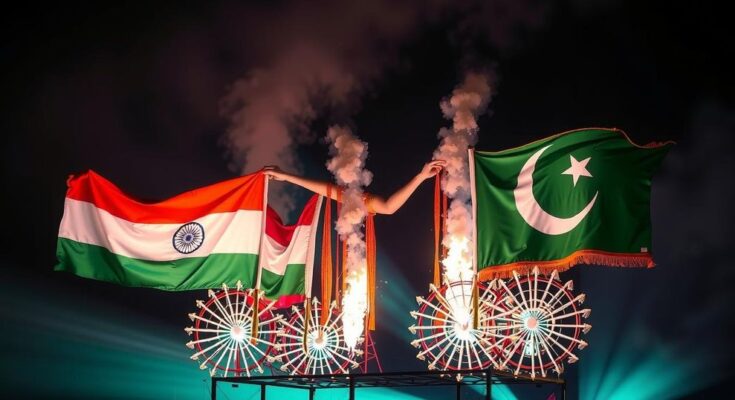India is hosting an event to celebrate the 150th anniversary of the India Meteorological Department (IMD), inviting countries from the era of undivided India, including Pakistan and Bangladesh. The event includes the issuance of a commemorative coin and various festivities to reflect the IMD’s evolution since its establishment in 1875. Notably, the IMD will showcase its tableau in the Republic Day parade for the first time, highlighting its significance in weather forecasting and advancements.
The Indian government has extended invitations to various nations, including Pakistan, to commemorate the 150th anniversary of the India Meteorological Department (IMD). The invitees also encompass Afghanistan, Myanmar, Bangladesh, Bhutan, the Maldives, Sri Lanka, and Nepal, along with officials from the Middle East and Southwest Asia. While Pakistan has confirmed its participation, the response from Bangladesh is still pending. A senior IMD official stated, “We wanted officials from all countries which were part of undivided India at the time of IMD’s establishment to be part of the celebrations.” In a bid to make the occasion memorable, the Ministry of Finance has sanctioned a special Rs 150 commemorative coin. A range of events, such as marathons, exhibitions, workshops, and Olympiads, will contribute to the vibrancy of the celebration, paralleling the dynamic nature of India’s climate.
For the first time, the IMD will feature its tableau in the Republic Day parade. Established in 1875 during the British colonial period, the IMD was initiated in response to a devastating cyclone that impacted Calcutta in 1864, along with severe monsoon failures observed in subsequent years. From its humble beginnings, the department has grown into a leader in weather forecasting, communication, and scientific breakthroughs.
Initially, weather warnings were communicated using telegrams; however, the IMD later emerged as a technological leader by introducing India’s first message-switching computer for global data exchange and one of the earliest electronic computers for meteorological research. India also made history by becoming the first developing nation to deploy the geostationary satellite, INSAT, which provides continuous weather monitoring and cyclone alerts.
The India Meteorological Department (IMD) was established in 1875 during British rule, primarily as a response to significant weather-related disasters that preceded its inception. The organization has since evolved remarkably, employing innovative technology for accurate weather forecasting and communication. With the IMD celebrating its 150th year, this event presents an opportunity for historical reflection and international collaboration among nations that were once part of undivided India. The involvement of diverse nations in the anniversary celebrations highlights a sense of shared heritage in meteorological advancements, which have significant implications for each country’s climate-related endeavors.
In conclusion, the celebration of the IMD’s 150-year milestone not only honors India’s meteorological advancements but also seeks to reinvigorate connections among countries significantly impacted by climate and weather patterns. With an array of planned festivities and empowered participation from neighboring nations, this commemorative event emphasizes the importance of collaboration in addressing shared environmental challenges and acknowledges the historical and contemporary significance of meteorological science.
Original Source: www.indiatvnews.com




